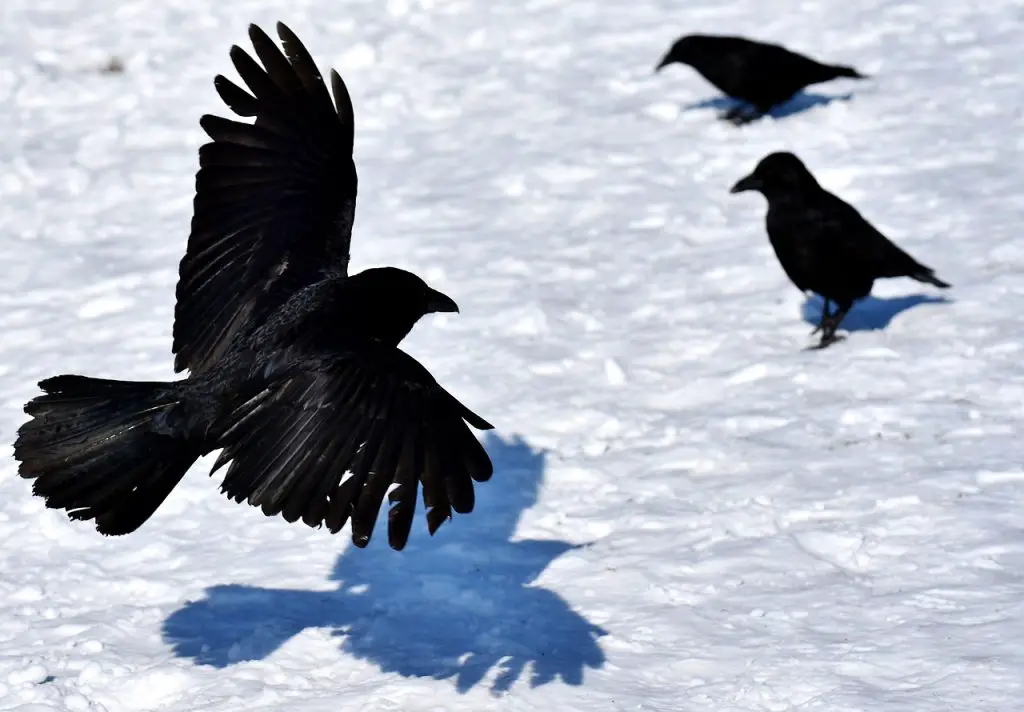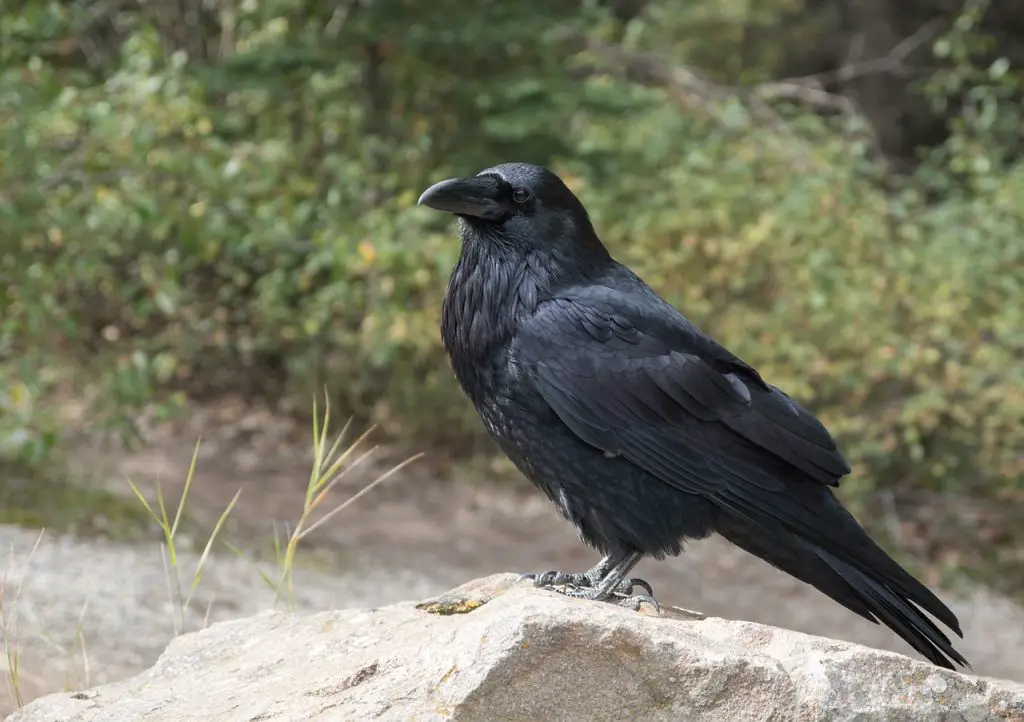A group of ravens can go by many names. But one of the most memorable names for a group of ravens is an ‘unkindness.’
Key Facts:
- A group of ravens can be called an unkindness.
- Ravens obtained this unique moniker due to their association with bad luck.
Terms for a Group of Ravens
The English language has several collective nouns intended to describe a group of ravens. A few include:
- An unkindness of ravens
- A treachery of ravens
- A conspiracy of ravens
- A flock of ravens
- A raven of ravens
Most of the collective nouns used to describe ravens have a negative connotation. But ravens aren’t the only ones with a sinister nickname. A group of crows, a cousin of ravens, are called a ‘murder of crows.’
When Do Ravens Gather in Groups?

Ravens, highly intelligent and social creatures, gather in groups throughout the year for various reasons. One of the main occasions when ravens come together is during the breeding season. As monogamous birds, mated pairs collaborate to build nests and raise their young. During this time, multiple pairs may establish a loose colony, providing safety and cooperation in caring for their fledglings.
Another significant reason for ravens to gather in groups is for feeding. These opportunistic birds are skilled scavengers and predators, often congregating around abundant food sources like carrion, garbage dumps, or even in agricultural fields during harvests. Feeding in groups allows them to efficiently access and consume their food, making the most of the available resources.
Additionally, ravens exhibit playful and curious behaviors, leading them to form gatherings for recreational purposes. Young ravens, especially, engage in play sessions that involve aerial acrobatics, tumbling, and games of chase, fostering their social bonds and enhancing cognitive skills.
Lastly, during migration, ravens may temporarily assemble in larger groups as they journey to different regions. These migratory congregations enable them to navigate long distances together, leveraging each other’s knowledge of favorable wind patterns and locating food and resting spots along their route.
Why Do Ravens Have a Bad Reputation?

Ravens have acquired a bad reputation over time due to various factors deeply rooted in history, folklore, and their clever behaviors. One primary reason is their association with death and dark symbolism in numerous cultures and myths. As scavengers, ravens are often seen around carcasses, leading to their connection with death and the afterlife. This association has led to negative perceptions in certain societies.
Additionally, their intelligence and resourcefulness have earned them a cunning reputation. Ravens are skilled at pilfering food from humans and other animals, which has sometimes brought them into conflict with people, especially farmers and livestock owners. Their adaptability to urban environments also leads them to scavenge from garbage, reinforcing the negative perception of them as pests.
Moreover, ravens’ vocalizations, particularly their harsh and raucous caws, can be unsettling to some people. In literature and movies, they are occasionally portrayed as ominous creatures, enhancing the negative image they carry.
However, it’s essential to note that these perceptions are not entirely accurate and often result from misunderstandings. In reality, ravens play crucial roles in ecosystems as both scavengers and predators, helping to maintain the balance of nature. They are highly intelligent birds with complex social structures and remarkable problem-solving abilities, making them an essential part of the natural world. Understanding and appreciating their ecological significance can help dispel some of the negative stereotypes surrounding these magnificent creatures.
Final Take on a Group of Ravens
Now you know that a group of ravens is called an unkindness. But in reality, this name might actually be an unkindness to the birds themselves.
